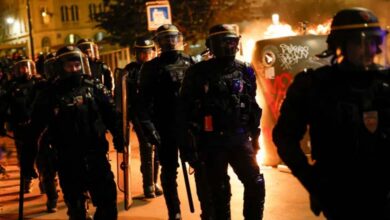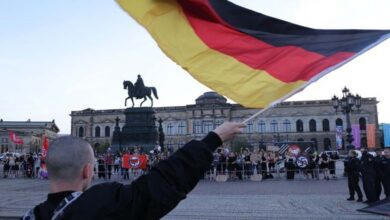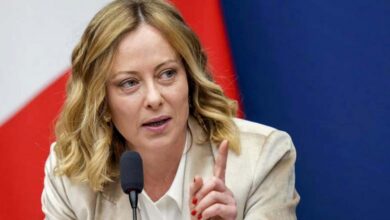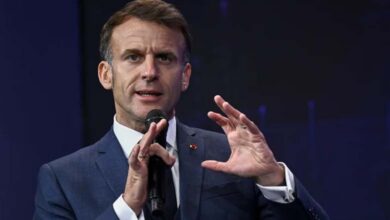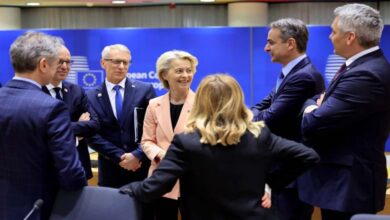Muslims of France: A Brotherhood Front Undermining the Fifth Republic
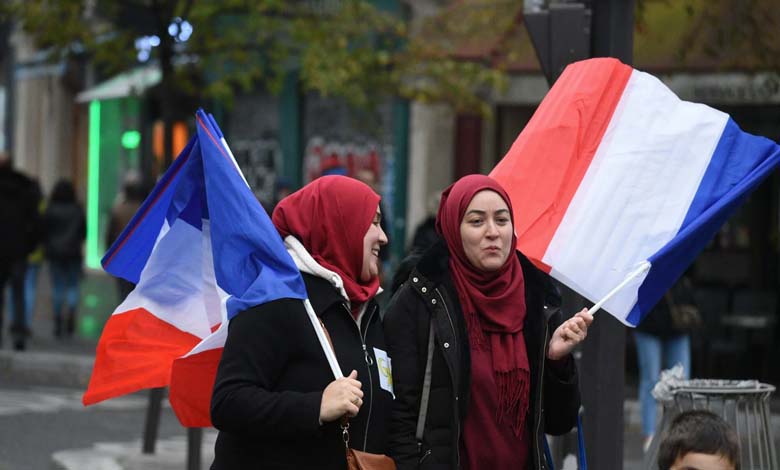
Clean-shaven faces, modest attire, and moderate discourse—on the surface, there’s nothing to suggest extremism. Quite the opposite: they go to great lengths to present a cloak of moderation.
In France, a multicultural society where nationalities and religions have coexisted since the establishment of the Fifth Republic in 1958, such appearances raise no alarms. Yet behind the scenes, sharper claws emerge to dismantle that polished exterior.
-
New Security Warning in France: The Muslim Brotherhood, “the Greatest Internal Threat”
-
Reaching by Any Means: How the Muslim Brotherhood Penetrated France
This is how the Muslim Brotherhood infiltrated both French society and state institutions, initially under the name Union of Islamic Organizations of France (UOIF), which later rebranded as “Muslims of France” in 2017.
Under this new name and through a slow, methodical process, the group integrated itself into society without showing radical tendencies. Only later—after recruitment and consolidation—do the masks fall, revealing its true agenda.
This scenario had long been anticipated by French experts and political figures, before a classified intelligence report exposed the depth of the Brotherhood’s penetration into France’s religious and social fabric.
-
France: Number of Muslim Brotherhood members has doubled since 2019, from 50,000 to 100,000
-
After a Peaceful Night… Did the Far Right in Britain Fail to Incite Chaos and Hatred Against Muslims?
In a 76-page confidential document, French intelligence outlines the network of Brotherhood influence under the current label “Muslims of France,” formerly UOIF.
A Front Organization?
The official report describes “Muslims of France” as the French branch of the Muslim Brotherhood. Its current president—a well-known cleric in Marseille and director of the Maryam and Ibn Khaldoun mosques—is listed among the group’s long-time leaders.
Despite the cordial tone of meetings with officials, the organization’s refusal to provide required documentation raised red flags regarding its secretive and hierarchical nature.
-
Launch of a New Alliance for Muslims in Europe… What Are Its Main Objectives?
-
The Group in Trouble… Who is the Islamist Ahmed Jaballah Expelled by France and Banned from Returning
Notably, several of the group’s leaders held public positions and shared official addresses with the association in Garges-lès-Gonesse, suggesting a blurring of lines between civic engagement and religious activism.
Key Figures and Influence
According to the report, the Brotherhood‘s French wing counts between 400 and 1,000 official members. “Muslims of France” runs 139 places of worship, with 68 directly affiliated mosques across 55 French departments, representing around 7% of all mosques in the country.
Between 2010 and 2020, 45 new mosques joined the group, accounting for 10% of all places of worship opened during that period.
-
The Muslim Brotherhood’s representation for education in France… What do you know about the National Federation for Private Islamic Education?
-
France sparks controversy among Arabs after refusing entry to hundreds of girls to schools due to the Abaya
A Complex Structure with Alarming Ties
The organization operates through 53 religious associations, 31 of which are currently active and led by local delegates. It also manages a network of 280 associations involved in education, youth outreach, finance, and charity work.
It claims to collaborate with 51 other mosque-managing associations and directly owns 26 worship sites.
Despite a sharp decline in funding over the past five years—its budget having been cut in half—the group still benefits from foreign financial support.
-
France mourns after the knife attack in the Notre-Dame basilica in Nice
-
20 years after the law on secularism in French schools, the debate is not subsiding
-
A Greek Orthodox priest was attacked and wounded on Saturday in France’s city of Lyon
Two foreign countries are named in the report as key sponsors, funding projects and mosques in cities like Strasbourg, Mulhouse, Marseille, and Schiltigheim. The European Institute of Human Sciences (IESH), a major training center for Brotherhood cadres, is also identified as a beneficiary.
A Calculated Influence Strategy
The group has relied on real estate investment structures (SCI) to ensure sustainable income and establish its institutions under educational or cultural covers.
Large events like the Muslim Festival in Le Bourget, which attracted hundreds of thousands over the past decade, served as recruitment and networking platforms within the Muslim community.
-
Calls for Boycotting France products began before Samuel Paty assassination
-
Can Macron stem the tide of Islamism in France?
The report comes amid growing concern in French political circles over the expansion of political Islam, with increasing calls for stricter secularism and oversight of foreign funding for religious organizations.
Counter-extremism experts warn that the Muslim Brotherhood is restructuring itself under new guises, exploiting France’s liberal laws on religious freedom and associative life to expand its reach.
-
Qatar Charitable Society and the organization of the Muslim Brotherhood and their relationship to the extent of extremism in France
-
“The Taqiyya” is a book that reveals the Muslim Brotherhood’s game in French politics.
In this context, Florence Bergeaud-Blackler, political scientist and expert on political Islam at the CNRS, told Le Parisien: “The threat posed by the Muslim Brotherhood lies in its use of democratic and civic tools to impose a long-term Islamist project that endangers secular values and national cohesion.”
She added: “Brotherhood-linked organizations in France are shaping Muslim communities in parallel spaces, undermining their integration and creating a rift with state institutions.”
-
Hidden Details Behind the Scenes: How the Muslim Brotherhood Creates Followers in Europe
-
The Muslim Brotherhood in Austria in 2024: From “Exposing Activities” to the Path to Banning
-
The Brotherhood worked to establish its schools in Europe to expand its ideas
-
The Umbrella Organization of the Muslim Brotherhood… What Do You Know About the Federation of Islamic Organizations in Europe?
-
The Emergence of Women’s Role in European Muslim Brotherhood Networks, Especially in Britain
-
The Efforts of the Muslim Brotherhood to Gain Control of European Capitals



